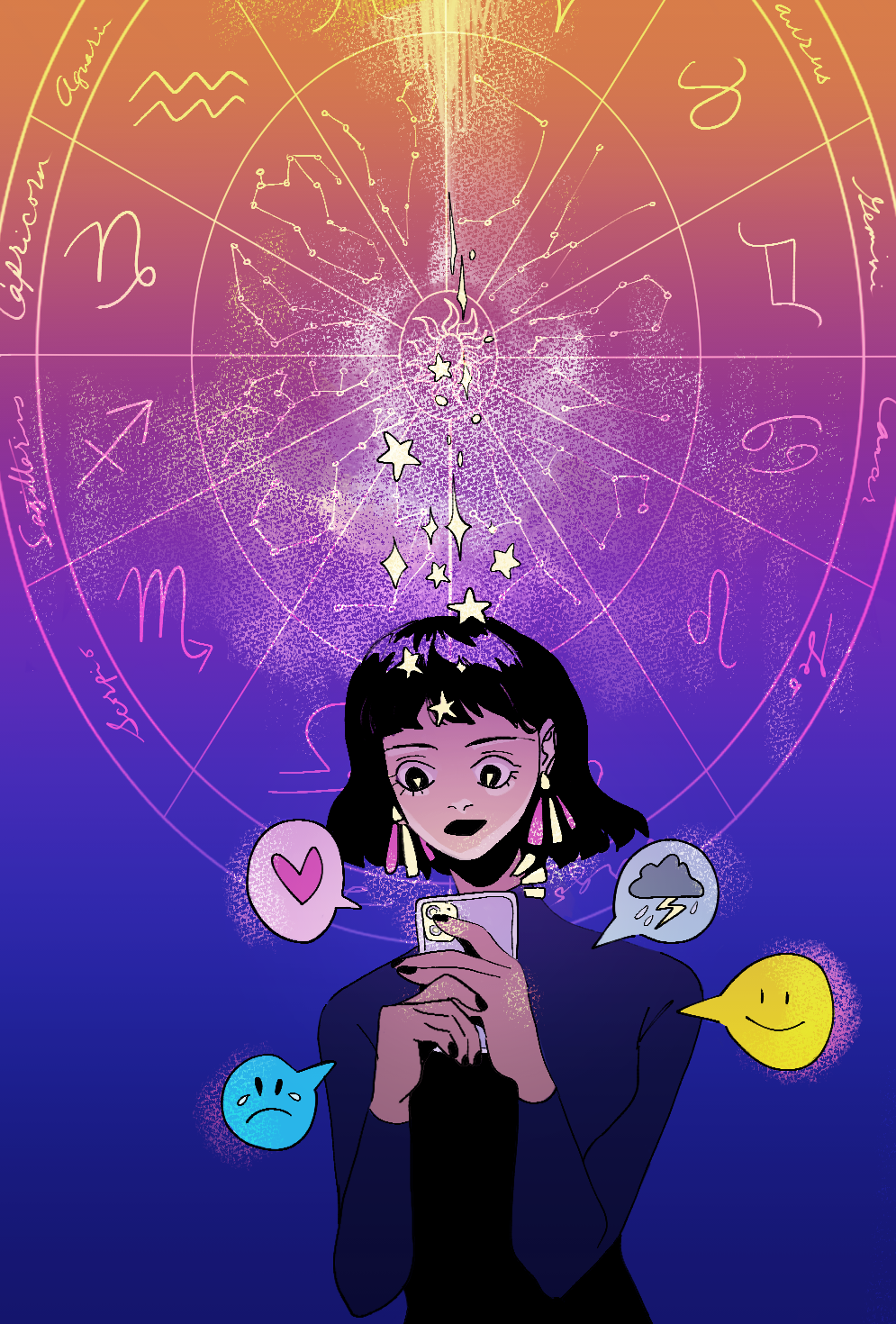If there is one force stronger than TikTok’s hold on our free time, it’s astrology’s cosmic grip on our decision-making. From checking our daily horoscope, analyzing birth charts, or even refusing to date anyone with a problematic Mercury placement, Millennials and Gen Z alike have let the stars take the wheel. Astrology apps like Co-Star are booming, and what was once an amusing hobby has turned into a full-blown decision-making guide. But let’s be honest, has it all gone a little too far?
Millennials and Gen Z: A Cosmic Divide?
Millennials and Gen Z may both embrace astrology, but their approach to horoscopes is as sharply divided as Mercury in retrograde. Millennials, who grew up with motivational posters and “follow your dreams” mantras, often see astrology as an accessory to their Instagram aesthetic. They might glance at their horoscope or check Co-Star before a big date, but generally, they keep a “just for fun” attitude, reluctant to surrender all control to the cosmos.
Enter Gen Z: the generation that fully embraces astrology’s mystical allure, diving headfirst into the zodiac’s mysteries. Known for their unapologetically intense approach to self-expression, Gen Z treats astrology with serious dedication.
Co-Star: An App, a Life Coach, and a Therapist
Co-Star deserves credit for transforming astrology into the life coach we never thought we needed. Its snarky, often brutally honest notifications keep users hooked on the idea that maybe the stars do know best. Millennials might find these notifications amusing, occasionally helpful, and easy to shrug off. But for Gen Z, Co-Star’s advice is serious business. Known for their unapologetically intense approach to self-expression, Gen Z approaches astrology with a devotion that goes beyond casual curiosity. Whether consulting Co-Star before big events or just checking it on a random Tuesday, horoscopes are more than just entertainment—they’re a guiding force. So, if a Gen Z friend says the stars don’t align for brunch, don’t be surprised if they skip it altogether.
For Millennials, Co-Star offers a lighthearted entry point into the cosmos—a mystical sidekick for those who want a bit of guidance without giving up complete control. For Gen Z, though, Co-Star functions more like a mini therapist, providing unfiltered validation and embracing their cosmic quirks wholeheartedly. It’s not just advice; it’s a trusted compass.
And if an app can make people feel seen and understood, even while advising them to steer clear of certain energies, maybe that’s worth something after all.
Still, we might pause to wonder about the implications of Co-Star’s shift from insightful to seemingly omnipotent in the eyes of some users. After all, an app that tells you which energies to avoid and when to make a move could indeed be helpful—but it might also become a convenient crutch to sidestep personal responsibility. Are users seeking genuine guidance, or does consulting Co-Star before every decision subtly absolve them from the consequences of their choices? For some, it could even mean trading intuition and self-trust for a digital oracle that’s only as wise as its algorithm.
The Power of the Zodiac: The Signs, the Myths, and the Stereotypes
Then there are the zodiac signs themselves—twelve archetypes that somehow manage to make us feel seen or, at the very least, mildly entertained. If you’re a Leo, you might read that you’re dramatic, bold, and maybe a little self-centred. For Virgos, it’s all about being neat freaks and organized to the point of obsession. Aries is said to be impulsive and competitive, charging headfirst into everything from projects to relationships like it’s their personal battleground. And they’ll remind you of it, too, with that signature Aries confidence that’s as endearing as it is intimidating.
For better or worse, these stereotypes stick, with people attributing their quirks to their signs and even evaluating others through the same lens. It’s a shortcut for understanding—or avoiding—certain personality types. It may be absurd, but ask any Sagittarius why they’ve ghosted someone, and they’ll probably laugh, “It’s a fire sign thing.” Sure, we’re more complex than twelve personality types, but in a time when understanding people can feel impossible, it’s understandable why people turn to zodiac signs as a quirky, almost forgiving way of sorting things out.
Whether it’s rolling our eyes at a “typical” Gemini or giving an Aries friend the green light to spearhead an impulsive road trip, these labels somehow provide a comforting, if imperfect, language for making sense of ourselves and the people around us.
Mercury Retrograde: The Great Equalizer
Mercury is in retrograde: every Millennial and Gen Z’s favourite catch-all excuse. Suddenly, everyone’s an expert in planetary motion, and we’re all bonding over the trials of Mercury’s supposed interference. Bad meeting at work? Blame Mercury retrograde. Did you accidentally text your ex? The stars are at play.
Astrology’s popularity today may have less to do with a literal belief in planetary motion and more with the sense of comfort that comes from having a shared language of mishaps. It’s easier to blame the universe than admit that maybe our choices were just… off. Sure, it’s funny, but it’s also telling of a generation seeking any way to make sense of a chaotic world.
The Verdict: Are the Stars Really Running Our Lives?
At the end of the day, astrology’s modern resurgence isn’t about taking horoscopes as gospel but about finding a playful framework to make sense of life’s noise. For many, the real magic isn’t in the stars themselves but in how we’re choosing to engage with them—as a quirky, comforting way to understand ourselves, our decisions, and each other.
So, the next time someone tells you they’re not coming out because ‘the planets aren’t aligned,’ maybe just go with it. After all, who are we to argue with the stars… or at least with a really persuasive push notification?








